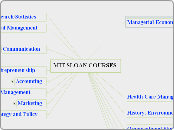par Ismael Nassereddine - Rick Hansen SS (2542) Il y a 9 années
216
Trade Barriers
Canada is actively expanding its influence in the Asia-Pacific region, a significant area projected to host most of the world's middle class and a substantial portion of global GDP by mid-century.









